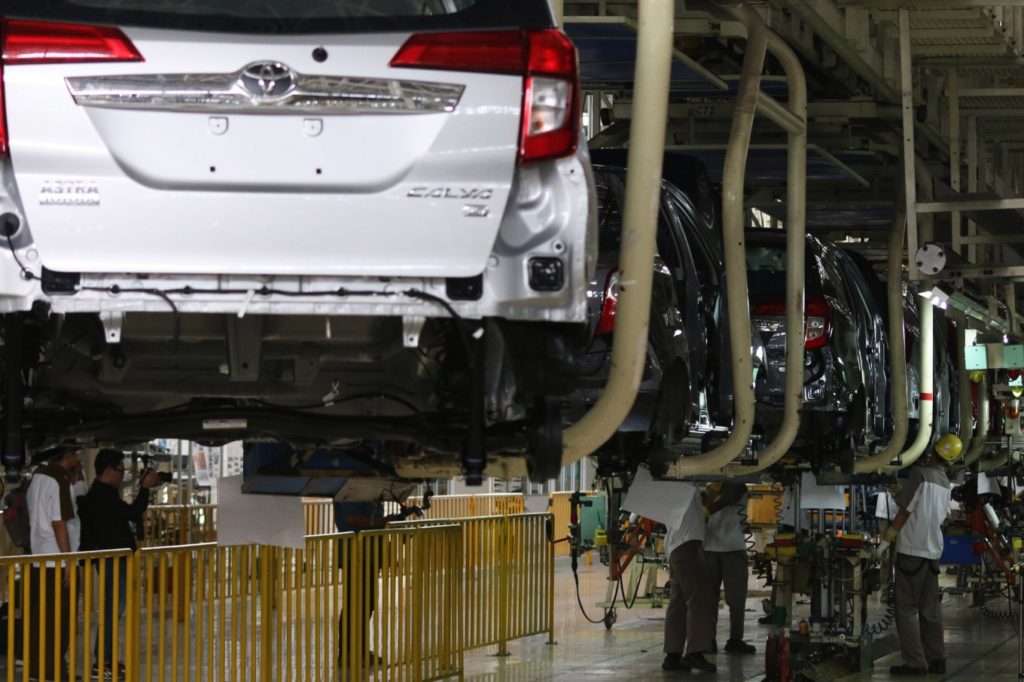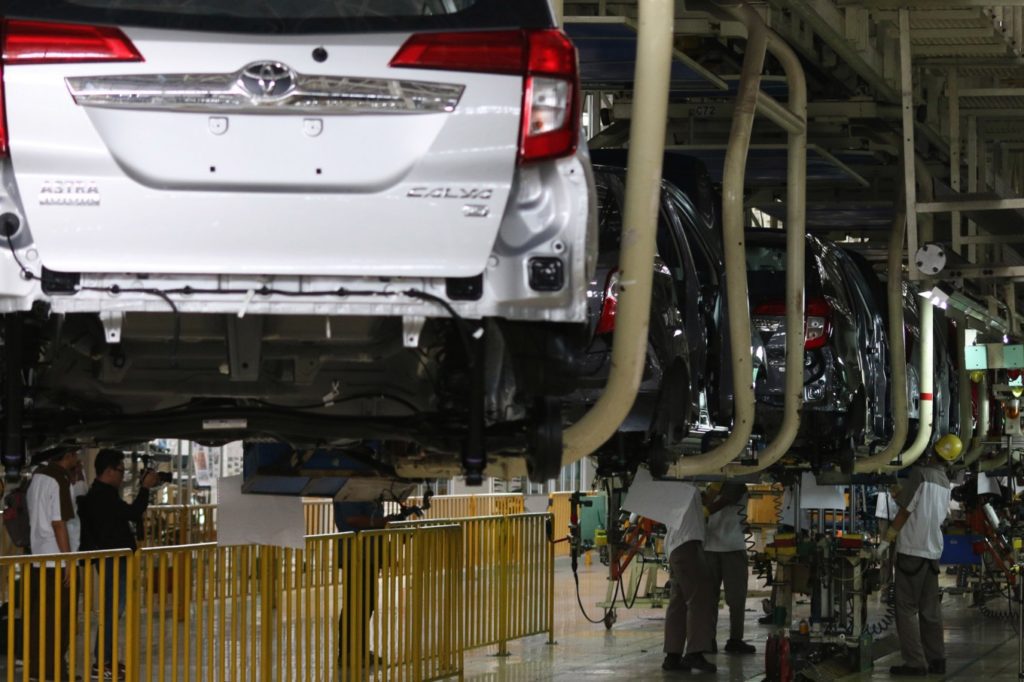High wages still top concern for Japanese companies in Indonesia: Survey. The steep increase in the minimum regional wage remains a major concern for Japanese companies doing business in Indonesia, according to a new survey conducted by the Japan External Trade Organization (JETRO).

The survey showed five main problems in investing in Indonesia including a sharp increase in wages (84 percent), difficulty in local procurement of raw materials (54.9 percent), the tax burden (55.4 percent), employee quality (55 percent) and quality control problems (53.6 percent).
The polling was part of JETRO’s survey of Japanese companies’ perception of the business climate in 20 countries in Asia and Oceania, including in Indonesia. The survey compiled answers from 13,458 respondents from Aug. 26 to Sept. 24, 2019. In Indonesia, 614 companies took part in the survey.
“The human-resource-related issues are the main problems, such as those related to wages, employee quality and difficulties in quality control,” said Takenobu Yamashiro, the senior director of JETRO’s office in Jakarta during a press briefing on Feb. 11.
Yamashiro said that wages remained the biggest problem considering that the annual increase in labor costs in Indonesia during the 2013-2020 period was among the highest in ASEAN. Wages in Indonesia are projected to increase by 7.2 percent this year, higher than the 7.1 percent in Vietnam, 5.4 percent in China and 3.9 percent in Thailand.
He pointed out that the percentages of four of the five major problems also increased from the previous year, meaning business conditions in 2019 could be even worse than in 2018.
“The percentage of the five major problems in Indonesia exceeded 50 percent and four out of the five problems increased from the previous year,” he added.
In Vietnam, for example, there were only two problems whose percentages exceeded 50 percent, namely the increase in wages and difficulty in local procurement of raw materials. The average percentage of the top-five problems showed a declining trend in Vietnam.
JETRO’s survey also showed that an increase in wages was among the biggest problems that could pose a risk to investment in Indonesia (76.9 percent) followed by time-consuming tax procedures (61.1 percent) and unclear local government policies (58.6 percent). The unclear policies related to industrial policy, energy policy and foreign investment regulations.
JETRO’s Jakarta president director Keishi Suzuki said many Japanese companies still had to deal with unpredictability in policy enforcement in Indonesia. Taxes and their administration are also among the toughest regulatory-related problems.
“Many Japanese companies often have to challenge the tax authorities due to differences in tax calculations. They are often required to pay more without solid reasons. So many Japanese companies take their case to the tax court,” said Suzuki.
Indonesia’s position on the World Bank’s Ease of Doing Business (EODB) index stagnated at 73rd – unchanged from last year. The EODB highlighted Indonesia’s rigid regulations on employment and minimum wages.
Meanwhile, when it comes to competitiveness in attracting foreign investment, Indonesia slipped five positions to 50th place out of 141 countries on the World Economic Forum’s (WEF) Global Competitiveness Index in 2019. ASEAN peer Vietnam gained 10 places to jump to the 67th position, while Malaysia and Thailand were ranked 27th and 40th, respectively.
Suzuki said that in the past few years the Indonesian government had made efforts to improve the administration such as through the online single submission and he hoped that there would be more innovation in the future. He also hoped the omnibus bill on job creation recently submitted by the government to the House of Representatives would be able to resolve these problems.
“We do hope that the bill can improve the investment [climate] in Indonesia. For instance, in relation to infrastructure, and hopefully, the increase in the minimum wage will not be too high, and there will be more certainty with regard to administrative procedures,” said Suzuki.
Meanwhile, Yamashiro said that although Indonesia had the online single submission, its implementation was still challenging.
“Thus, if Indonesia wants to increase its investment it is very important for Indonesia to have regulatory reform and tax system reform,” he said.
Investment Coordinating Board (BKPM) data showed that Japan was the third-biggest foreign investor in Indonesia during 2019 with investment worth US$4.3 billion. Singapore was still Indonesia’s largest foreign investor with $6.5 billion in total investment recorded last year, followed by China ($4.7 billion). High wages still top concern for Japanese companies in Indonesia: Survey (Riza Roidila Mufti, The Jakarta Post) Booming Indonesian Business Indonesia Online Expo China Indonesia Online Expo






 How a Canadian Start-up Used AI to Track China Virus
How a Canadian Start-up Used AI to Track China Virus 